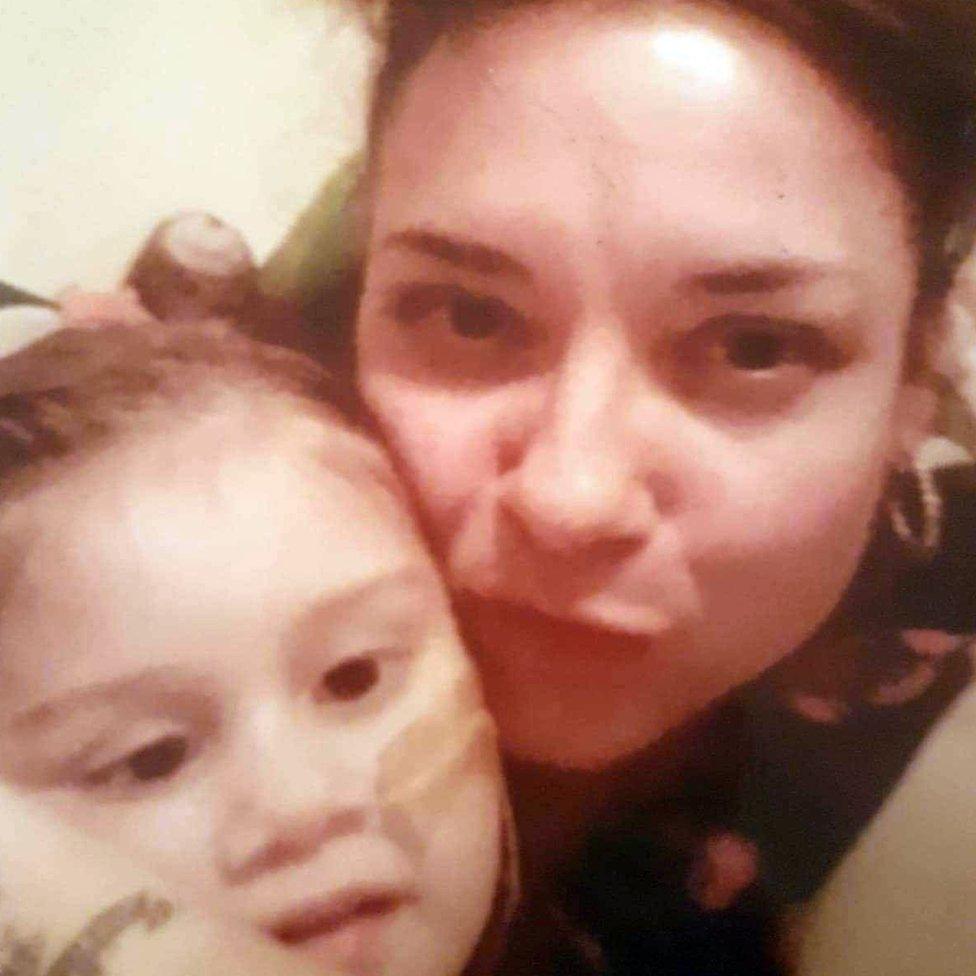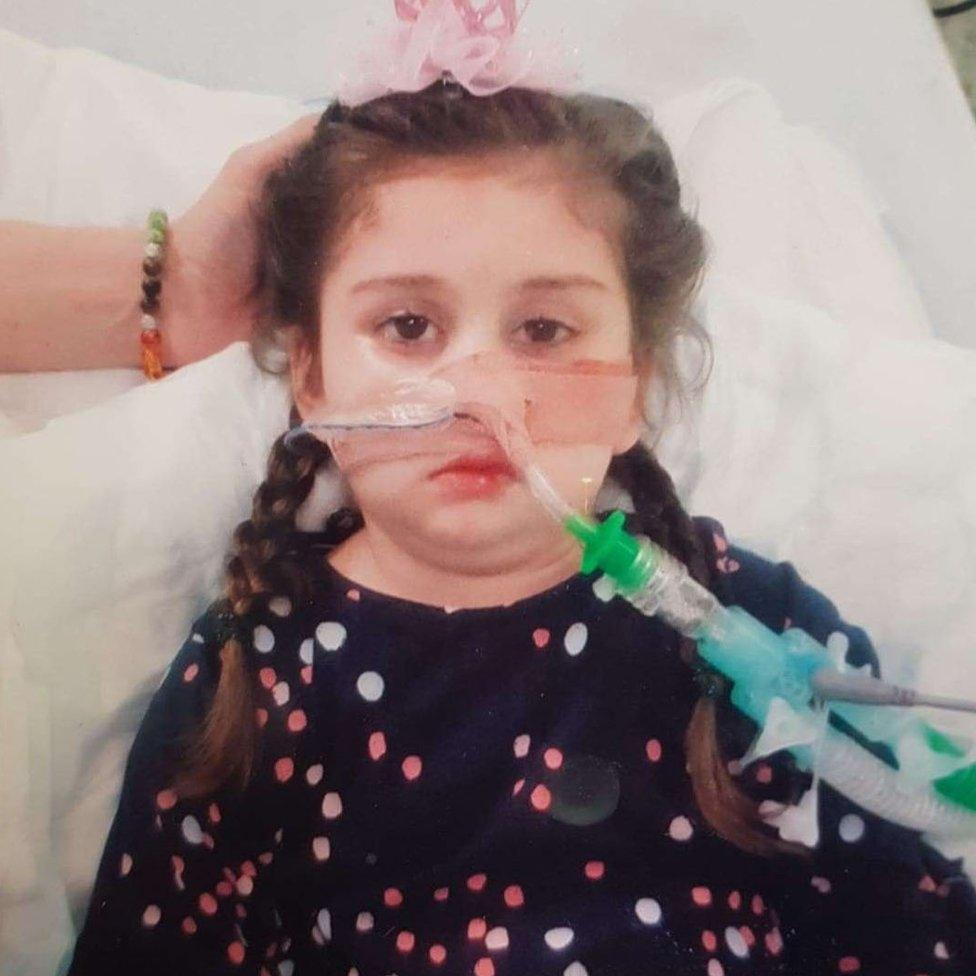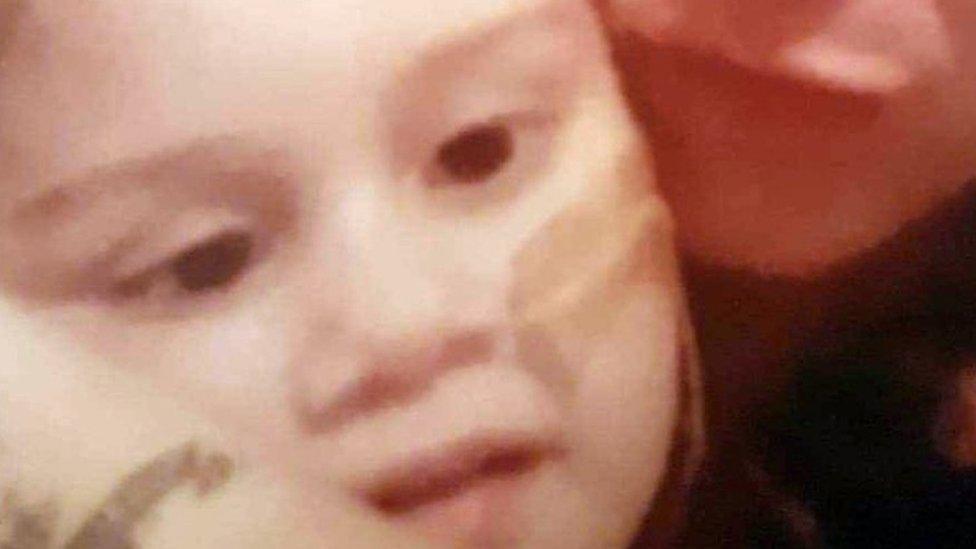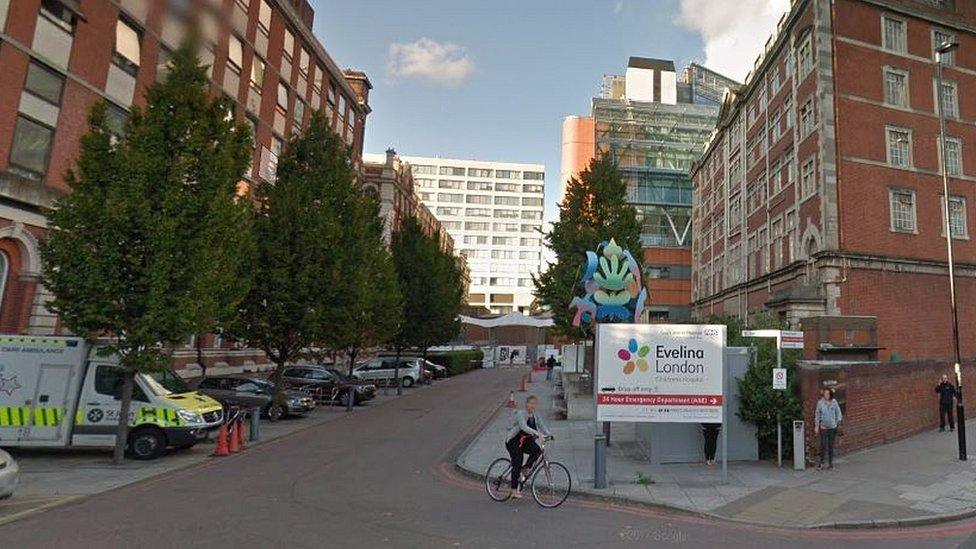Brain-damaged Pippa Knight 'should be allowed to die', judge rules
- Published

Paula Parfitt wanted Pippa to be treated at home
A girl with brain damage who is in a vegetative state should be allowed to die, a High Court judge has ruled.
Doctors treating Pippa Knight at London's Evelina Children's Hospital said life-support treatment should end.
The five-year-old's mother, Paula Parfitt, 41, wanted doctors to allow her to be treated at home.
Hospital bosses had asked Mr Justice Poole to rule that ending treatment, and allowing Pippa to die, would be lawful and in her best interests.
Mr Justice Poole, who took evidence at a hearing in the Family Division of the High Court in London in December, has ruled life-support treatment should end and Pippa should be allowed to die.
Ms Parfitt said her daughter could be given a tracheostomy, then attached to a portable ventilator and allowed to return home to Strood, Kent.
She said she was going to seek permission to appeal to the Court of Appeal.

Doctors treating Pippa said she would not recover or improve
Mr Justice Poole had previously heard how Pippa was diagnosed with acute necrotising encephalopathy and became ill when she was 20 months old.
Doctors who are treating the girl said there was no evidence that Pippa, who is in a vegetative state, would recover or improve.
Mr Justice Poole said in his ruling: "Ms Parfitt has fought as hard for Pippa as any parent could.
"[I] cannot give weight to Ms Parfitt's view that home care would improve Pippa's condition, because it is at odds with the unanimous view of the clinicians and medical experts."
He said: "Responsibility for the decisions in this case lies with the court, not with her.
"My conclusion is that continued mechanical ventilation is contrary to Pippa's best interests."
In a statement issued after the ruling, Ms Parfitt said: "I am devastated by the judgment.
"The medical experts and the treating doctors said that Pippa was not in any pain. I don't understand why the hospital and the court wouldn't let me find out whether Pippa could come home to be cared for with all her family around her when two independent doctors from reputable hospitals in England both said that they thought this was worth trying."

Follow BBC South East on Facebook, external, on Twitter, external, and on Instagram, external. Send your story ideas to southeasttoday@bbc.co.uk.
Related topics
- Published16 December 2020

- Published15 December 2020

- Published14 December 2020
